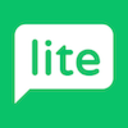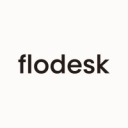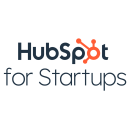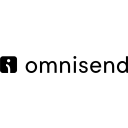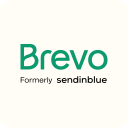Moosend vs Mailchimp: Which tool fits your needs?
- 01Moosend vs Mailchimp: overview
- 02What's the difference between Moosend and Mailchimp?
- 03Moosend pros and cons
- 04Mailchimp pros and cons
- 05Moosend compared to Mailchimp
- 06Mailchimp compared to Moosend
- 07Features comparison
- 08Moosend vs Mailchimp: Which is the best for your business?
- 09Promotions on Email Marketing software
- 10Alternatives to Moosend & Mailchimp
Access up to $215 savings on Moosend & $1,870 on Mailchimp
Access up to $215 savings on Moosend & $1,870 on Mailchimp
Effective email marketing is crucial for businesses looking to engage their audience, drive conversions, and build long-term customer relationships. However, managing campaigns, automating workflows, and analyzing performance can be overwhelming without the right tools. That's where email marketing platforms come in, providing robust features to streamline your marketing efforts.
With numerous options on the market, choosing the right platform can be daunting. In this article, we compare two popular email marketing solutions—Moosend and Mailchimp. By examining their features, pricing structures, and key differences, you’ll be able to determine which platform best meets your business needs.
Moosend vs Mailchimp: overview
Moosend and Mailchimp are two leading contenders in the email marketing software category, each offering a distinct set of features tailored to meet the diverse needs of businesses.
Moosend is celebrated for its user-friendly interface and powerful automation tools that simplify the creation and management of email campaigns. It provides robust segmentation options, customizable templates, and advanced analytics, making it an excellent choice for businesses focused on efficiency and personalization. On the other hand, Mailchimp is renowned for its comprehensive suite of marketing tools that extend beyond email. With Mailchimp, businesses gain access to features like landing pages, social media ads, and CRM functionality, in addition to its email marketing capabilities.
Now, let's dive into the Moosend vs. Mailchimp comparison to help you decide which platform best aligns with your email marketing and overall business objectives.
What's the difference between Moosend and Mailchimp?
Moosend and Mailchimp are two well-known email marketing platforms that cater to businesses looking to enhance their marketing efforts. Both platforms offer robust tools for creating, managing, and analyzing email campaigns, but there are key differences that may influence your decision on which one to choose.
The first major difference lies in their pricing models. Moosend is often lauded for its affordability, making it an attractive option for small to medium-sized enterprises (SMEs). Moosend offers a transparent pricing structure with a free plan available for up to 1,000 subscribers, which includes basic features like email campaigns, automation, and reporting. As you scale up, Moosend’s pricing remains competitive, offering a pay-as-you-go option that is ideal for businesses with fluctuating email marketing needs. In contrast, Mailchimp’s pricing can be more complex, especially as you add features or increase your subscriber count. Mailchimp offers a free plan as well, but its paid plans, which include more advanced features, can become costly, particularly for larger lists or those needing more comprehensive tools like advanced segmentation and multivariate testing.
Another significant difference is the breadth of features each platform offers. Moosend is primarily focused on email marketing, providing powerful automation tools, a drag-and-drop editor, and advanced analytics. This streamlined focus makes it ideal for businesses that primarily want to enhance their email marketing without the need for additional marketing channels. On the other hand, Mailchimp has evolved into an all-in-one marketing platform. Beyond email, it offers tools for building landing pages, running social media ads, managing customer relationships (CRM), and even conducting surveys. This makes Mailchimp a more versatile option for businesses seeking an integrated approach to their marketing strategy.
Lastly, Moosend and Mailchimp differ in their integrations and ease of use. Moosend offers straightforward integrations with popular CRM and eCommerce platforms, making it easy to connect with your existing tech stack. Mailchimp, however, provides a broader range of integrations, including advanced tools for eCommerce, social media, and analytics, which may be more beneficial for businesses looking for a more comprehensive solution.
In summary, while both Moosend and Mailchimp offer strong email marketing capabilities, Moosend is generally more cost-effective and focused, making it a great choice for SMEs with specific email marketing needs. Mailchimp, with its wider range of features and integrations, is better suited for businesses seeking a more all-encompassing marketing solution.
Moosend pros and cons
What are the advantages of Moosend?
- Affordable pricing: Moosend is known for its competitive pricing, especially for small to medium-sized businesses. It offers a free plan with generous features and a pay-as-you-go option, making it budget-friendly for businesses with varying needs.
- User-friendly interface: Moosend's interface is intuitive and easy to navigate, even for beginners. The drag-and-drop email builder and straightforward automation workflows allow users to create campaigns quickly without needing extensive technical knowledge.
- Advanced automation: Moosend provides powerful automation features, including customizable workflows, triggers, and segmentation. These tools help businesses streamline their marketing processes and deliver personalized content to their audiences.
- Strong analytics and reporting: Moosend offers robust analytics and reporting tools, allowing users to track the performance of their campaigns in real-time. You can monitor open rates, click-through rates, and other key metrics to optimize your strategies effectively.
- Responsive customer support: Moosend is praised for its customer support, which includes live chat, email support, and an extensive knowledge base. This ensures that users can get help quickly when they encounter issues or have questions about the platform.
What are the disadvantages of Moosend?
- Limited advanced features: While Moosend covers the essentials of email marketing well, it lacks some of the more advanced features found in other platforms, such as advanced multivariate testing or more sophisticated AI-driven tools.
- Basic integrations: Moosend offers a decent range of integrations, but it’s not as extensive as some competitors. If your business relies on specific third-party tools, you might find the available integrations somewhat limited.
- Less customizable templates: Moosend's email templates, while functional, offer fewer customization options compared to other platforms. Users looking for highly unique or intricate designs may find the template library somewhat restrictive.
- Limited free plan: While Moosend’s free plan is generous in terms of features, it caps at 1,000 subscribers. For businesses with larger lists, the transition to paid plans is necessary relatively quickly.
- No mobile app: Moosend currently does not offer a mobile app, which may be inconvenient for users who prefer to manage their email campaigns on the go. This lack of mobility might be a drawback for busy marketers who need to access their campaigns from their smartphones.
Compare Moosend to other tools
Mailchimp pros and cons
What are the advantages of Mailchimp?
- Comprehensive marketing tools: Mailchimp has evolved into an all-in-one marketing platform, offering a wide range of tools beyond just email marketing. This includes landing page creation, social media advertising, CRM capabilities, and even basic e-commerce functionality.
- Extensive integration options: Mailchimp provides a broad range of integrations with third-party applications, including popular CRM systems, e-commerce platforms, and social media networks. This allows businesses to easily connect Mailchimp with their existing tech stack, enhancing workflow and data synchronization.
- Advanced analytics and reporting: Mailchimp offers detailed analytics and reporting features, enabling users to track the performance of their campaigns with metrics such as open rates, click-through rates, and conversion tracking. The platform also provides AI-driven insights to help optimize campaign strategies.
- User-friendly interface: Mailchimp’s interface is designed with ease of use in mind, making it accessible to both beginners and experienced marketers. The drag-and-drop email builder, pre-designed templates, and guided setup processes simplify the creation and management of campaigns.
- Free plan availability: Mailchimp offers a free plan that includes basic email marketing features, making it an attractive option for small businesses or startups with limited budgets. The free plan supports up to 500 contacts, which is suitable for businesses just getting started with email marketing.
What are the disadvantages of Mailchimp?
- Expensive for larger lists: While Mailchimp’s free plan is appealing, its pricing can become expensive as your contact list grows and you require more advanced features. The costs can escalate quickly for businesses with large subscriber bases or those needing premium features like advanced segmentation and automation.
- Complex pricing structure: Mailchimp’s pricing model can be confusing, with multiple tiers and add-ons that can make it difficult for users to understand the total cost of the platform. This complexity might lead to unexpected expenses as businesses scale their marketing efforts.
- Limited automation on lower plans: While Mailchimp offers automation features, the more sophisticated automation options, such as advanced customer journeys and triggers, are restricted to higher-tier plans. This limits the capabilities for businesses on lower-tier or free plans.
- Template customization limitations: Although Mailchimp provides a variety of templates, customization options can be somewhat limited compared to other platforms. Users looking to create highly unique or complex email designs may find the design flexibility insufficient.
- Support access: Mailchimp’s customer support is tiered based on your subscription plan. While higher-tier plans receive priority support, users on the free or lower-cost plans may only have access to email support or limited live chat availability, which can be a drawback when urgent assistance is needed.
Compare Mailchimp to other tools
Moosend compared to Mailchimp
Moosend and Mailchimp are both powerful email marketing platforms, but they cater to slightly different needs. Moosend is favored for its affordability and simplicity, offering robust automation tools and a user-friendly interface, making it ideal for small to medium-sized businesses focused on cost-effective email campaigns.
In contrast, Mailchimp provides a broader range of marketing tools beyond email, including CRM and social media integrations, making it a more versatile solution for businesses seeking an all-in-one platform. However, Mailchimp's pricing can become expensive as your subscriber list grows, whereas Moosend remains budget-friendly with straightforward pricing.
Is Moosend better than Mailchimp?
Determining whether Moosend is better than Mailchimp depends on your specific needs. Moosend excels in offering an affordable, user-friendly platform with strong email automation features, ideal for businesses seeking cost-effective email solutions without complex functionalities. It is particularly suited for those who prioritize straightforward, efficient email marketing.
On the other hand, Mailchimp shines with its comprehensive suite of marketing tools, including CRM, social media integration, and advanced analytics, making it more versatile for larger businesses needing an all-in-one platform. However, the increased range of features in Mailchimp comes at a higher price, which might not be justifiable for smaller operations.
What is Moosend best used for?
Moosend is best used for creating and managing efficient email marketing campaigns, particularly for small to medium-sized businesses. Its strengths lie in its user-friendly interface, advanced automation features, and cost-effective pricing.
Moosend excels at helping businesses design visually appealing emails, segment their audiences for targeted messaging, and track campaign performance through detailed analytics. It's especially well-suited for companies that want to streamline their email marketing efforts without the complexity or higher costs associated with more expansive marketing platforms. Overall, Moosend is ideal for businesses focused on optimizing their email marketing strategy with simplicity and efficiency.
Can Moosend replace Mailchimp?
Moosend can be a viable replacement for Mailchimp, particularly for businesses that primarily focus on email marketing and are seeking a more affordable solution. Moosend offers comparable features such as automation, segmentation, and analytics, making it an effective tool for managing email campaigns.
However, if your business requires a broader range of marketing tools beyond email, such as CRM integration, social media advertising, or more advanced automation capabilities, Mailchimp might still be the better option.
Is Moosend cheaper than Mailchimp?
Yes, Moosend is generally cheaper than Mailchimp, making it a cost-effective choice for businesses, especially small to medium-sized enterprises. Moosend’s pricing is usually straightforward and transparent with no hidden fees, and its plans tend to be more affordable, particularly as your subscriber list grows.
Additionally, Moosend provides a robust set of features even at lower pricing tiers, including automation and analytics, without the escalating costs associated with Mailchimp’s more advanced plans. For businesses focused on maximizing their email marketing budget while still accessing essential tools, Moosend presents a more economical option compared to Mailchimp.
Is there a better Email Marketing software than Moosend?
When evaluating email marketing platforms, it's essential to consider whether there might be a software alternative that better suits your specific needs than Moosend.
Some noteworthy alternatives to Moosend include Mailchimp, Constant Contact, Brevo, ActiveCampaign, and HubSpot.
The choice of an email marketing platform depends on your business's unique marketing objectives, the complexity of your campaigns, integration requirements, and budget constraints. While Moosend is praised for its affordability, user-friendly interface, and powerful automation features, other platforms may offer more advanced marketing tools, broader integrations, or specialized features that better align with your overall marketing strategy and business goals.
75% off monthly plans for 1 year on Moosend
Get 75% off monthly plans for 1 year on Moosend and up to $215 savings with Secret.
Mailchimp compared to Moosend
Mailchimp offers a more comprehensive suite of marketing tools compared to Moosend, extending beyond email marketing to include CRM, social media ads, and e-commerce features. This makes Mailchimp a more versatile platform for businesses seeking an all-in-one solution.
However, Moosend excels in delivering a streamlined, cost-effective email marketing experience with powerful automation and analytics at a lower price point. While Mailchimp’s expansive features come with higher costs, Moosend remains a more budget-friendly option for businesses primarily focused on email campaigns.
Is Mailchimp better than Moosend?
Whether Mailchimp is better than Moosend depends largely on your business needs. Mailchimp stands out with its extensive suite of marketing tools, offering features like CRM, social media advertising, and e-commerce integrations that make it a robust, all-in-one platform. This versatility is ideal for businesses looking to manage various aspects of their marketing strategy from a single platform.
However, if your primary focus is on email marketing and you seek an affordable, user-friendly solution, Moosend provides an excellent alternative. Its strength lies in delivering effective email marketing automation and analytics at a lower cost, making it a great option for budget-conscious businesses.
What is Mailchimp best used for?
Mailchimp is best used for businesses seeking a comprehensive, all-in-one marketing platform that goes beyond email campaigns. It's particularly effective for managing customer relationships, creating and optimizing multi-channel marketing campaigns, and integrating various marketing efforts, including social media ads, landing pages, and even basic e-commerce functions.
Mailchimp’s robust automation tools, segmentation capabilities, and detailed analytics make it ideal for businesses looking to execute sophisticated marketing strategies across multiple channels. Whether you're nurturing leads, engaging with customers, or running targeted ad campaigns, Mailchimp provides the tools needed to manage and scale these efforts seamlessly.
Can Mailchimp replace Moosend?
Mailchimp can replace Moosend for businesses that require more than just email marketing capabilities. While Moosend excels in providing affordable and powerful tools specifically for email campaigns, Mailchimp offers a broader range of marketing features, including CRM, social media advertising, and e-commerce integrations.
If your business needs a versatile platform that can manage multi-channel marketing efforts, Mailchimp could be a suitable replacement. However, for those focused solely on email marketing with an emphasis on cost-efficiency and straightforward functionality, Moosend might still be the better choice.
Is Mailchimp cheaper than Moosend?
Mailchimp is generally more expensive than Moosend, particularly as your subscriber list grows or if you require advanced features. While Mailchimp’s pricing structure offers a free plan, its paid tiers can become costly due to its extensive range of marketing tools beyond just email.
Moosend, on the other hand, is known for its straightforward and affordable pricing, making it a more budget-friendly option for businesses primarily focused on email marketing. For small to medium-sized businesses or those with tight budgets, Moosend often proves to be the more economical choice compared to Mailchimp's more premium pricing structure.
Is there a better Email Marketing software than Mailchimp?
When considering alternatives to Mailchimp, it's essential to assess whether another platform might better suit your unique marketing needs.
Prominent alternatives to Mailchimp in the email marketing and multi-channel marketing space include Moosend, Klaviyo, GetResponse, MailerLite, and Omnisend.
The choice of an email marketing platform depends on your business goals, the complexity of your marketing strategies, and the range of tools you require. While Mailchimp offers a comprehensive suite of features for email, CRM, and beyond, other platforms may provide advantages in specific areas, such as more affordable pricing, advanced automation, superior customer support, or better integration with certain CRM systems.
50% off the Standard plan for 6 months on Mailchimp
Get 50% off the Standard plan for 6 months on Mailchimp and up to $1,870 savings with Secret.
Features comparison
Moosend Excels Ahead of Mailchimp in Responsive Email Design
With Moosend's responsive templates, you can effortlessly create visually appealing emails that automatically adapt to your recipients' preferred viewing screens, whether they are using a desktop, tablet, or mobile device. Moosend’s ready-to-use templates are specifically designed to ensure compatibility across all devices, providing a consistent and seamless user experience regardless of the platform.
While Mailchimp offers a design tool assisted by AI to enhance the creative process, Moosend’s focus on device compatibility means that your emails will always look polished and professional, eliminating the risk of formatting issues that can occur with different screen sizes. This makes Moosend particularly advantageous for businesses that prioritize consistent and reliable email presentation across a diverse audience.
Mailchimp Excels Ahead of Moosend with Advanced Customer Segmentation
Mailchimp offers advanced customer segmentation capabilities that surpass those of Moosend, particularly in terms of predictive analytics. Mailchimp allows users to create highly specific segments based on customer behavior, interests, and purchase history. For example, it can predict which customers are most likely to re-purchase or identify those with high spending potential, enabling targeted and effective marketing strategies. This feature enhances personalization and helps in crafting more relevant campaigns.
While Moosend also provides robust list management and segmentation tools, its offerings do not include the same level of predictive analytics. This gives Mailchimp a significant advantage for businesses looking to leverage deep data insights to refine their marketing efforts and drive better results.
Moosend Excels Ahead of Mailchimp in User-Friendliness
When considering ease of use, Moosend has a clear advantage over Mailchimp. Moosend’s interface is designed with simplicity and user-friendliness in mind, offering a clean, intuitive, and streamlined experience that makes it easy for novice users to navigate. The process of creating email campaigns in Moosend is highly organized, guided by a step-by-step process that ensures users can easily design and deploy campaigns. Its templates are straightforward, allowing for quick and effortless customization, which is ideal for those without extensive design experience.
On the other hand, while Mailchimp does offer user-friendly features, its interface can feel cluttered and overwhelming, especially for beginners. The extensive range of tools and options in Mailchimp may result in a steeper learning curve, making it less accessible for users who prefer a more straightforward approach.
Mailchimp Leads Moosend in Integration Capabilities
In terms of integration capabilities, Mailchimp takes the lead. Mailchimp integrates seamlessly with a vast array of platforms and applications, including popular CRM systems like Salesforce, e-commerce platforms such as Shopify and WooCommerce, social media channels like Facebook and Instagram, and advanced analytic tools like Google Analytics. This extensive range of integration possibilities is crucial for businesses of all sizes, as it allows for greater flexibility and the ability to streamline marketing efforts across multiple channels.
While Moosend also offers a solid selection of integration options, its range is slightly more limited compared to Mailchimp. However, Moosend focuses on quality over quantity, ensuring that its integrations with partner apps and tools, such as Zapier and WordPress, are reliable and smooth, catering well to businesses that prioritize essential and effective connections over a broader range of options.
Mailchimp Excels Ahead of Moosend with Content Optimization Tools
Mailchimp’s unique feature, the Content Optimizer, offers valuable insights that can significantly enhance your email marketing strategy. This tool analyzes your email content against data from top-performing campaigns and provides actionable tips on how to improve subject lines, layout, and overall messaging to maximize engagement and conversions. For example, it might suggest changes to increase open rates or recommend adjustments to email length for better readability. This advanced level of detailed insight gives Mailchimp a distinct edge over Moosend, which does not offer a comparable feature for optimizing content strategy.
While Moosend excels in other areas, such as automation and landing page design, it lacks this sophisticated, data-driven approach to content improvement, making Mailchimp the better choice for businesses seeking to fine-tune their email marketing efforts with precise, expert guidance.
Both Moosend and Mailchimp Offer Superb A/B Testing Capabilities
Both Moosend and Mailchimp provide robust A/B testing capabilities that are essential for optimizing email marketing campaigns. These tools allow marketers to experiment with various elements of their emails, such as subject lines, content, images, call-to-action buttons, and send times, to determine which combinations yield the best results. For instance, you can test different subject lines to see which one generates higher open rates or experiment with varying content layouts to maximize click-through rates. Moosend's A/B testing is straightforward, enabling users to easily set up and analyze tests, making it ideal for businesses focused on simplicity.
Meanwhile, Mailchimp offers more advanced testing options, including multivariate testing, which allows you to test multiple variables simultaneously for deeper insights. This capability gives both platforms a significant edge in helping businesses fine-tune their strategies and deliver more effective, data-driven campaigns.
Moosend Excels Ahead of Mailchimp in Landing Page Design
While both Moosend and Mailchimp offer comprehensive tools for email marketing, Moosend truly stands out in the realm of landing page design. Moosend's landing page builder is a powerful tool that allows users to create visually stunning and highly effective landing pages directly within the platform. This feature is designed to enhance conversions by providing a seamless user journey, from email to landing page, all within a unified interface. The builder includes drag-and-drop functionality, customizable templates, and real-time editing, making it accessible even for those without design experience.
In contrast, Mailchimp lacks a dedicated landing page builder with the same level of integration and ease, requiring users to rely on third-party tools or more complex workflows to achieve similar results. This makes Moosend the superior choice for businesses looking to optimize their landing page design as part of their overall email marketing strategy.
Subscribe to our newsletters.
No FOMO here. Stay up-to-date on all the latest deals and news with our monthly newsletter straight to your inbox like 112,000+ entrepreneurs (+ Get 10% off on on our Premium Membership!)
Moosend vs Mailchimp: Which is the best for your business?
Moosend is the best tool for you if:
- You need an affordable email marketing solution with robust automation features that can efficiently handle large volumes of email campaigns without breaking the bank.
- You prefer a user-friendly interface that allows you to quickly set up and manage email campaigns, even if you have limited experience in email marketing.
- You want to create visually appealing and responsive emails using a variety of ready-to-use templates that ensure your messages look great on any device.
- You are looking for strong list management and segmentation capabilities that help you target specific audiences and personalize your email campaigns effectively.
- You value simplicity and efficiency in your marketing automation workflows, needing a platform that integrates smoothly with your existing tools and processes.
Mailchimp is the best tool for you if:
- You require a comprehensive marketing platform with advanced features like CRM, social media integration, and e-commerce tools to manage all your marketing efforts in one place.
- You need advanced customer segmentation and predictive analytics to create highly targeted campaigns and effectively engage with different segments of your audience.
- You value a wide range of integrations with third-party applications, such as Salesforce and Shopify, allowing you to streamline your marketing workflows and synchronize data seamlessly.
- You are looking for a robust set of design tools and AI-powered content optimization features to help craft compelling email campaigns and improve engagement rates.
- You prefer a platform with extensive reporting and analytics capabilities, offering detailed insights into campaign performance to guide data-driven decisions and optimize your marketing strategy.
Alternatives to Moosend & Mailchimp
Promotions on Email Marketing software
Start saving on the best SaaS with Secret.
Secret has already helped tens of thousands of startups save millions on the best SaaS like Moosend, Mailchimp & many more. Join Secret now to buy software the smart way.







